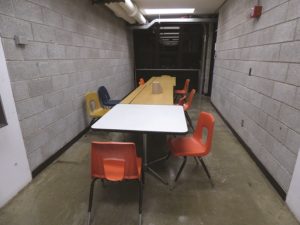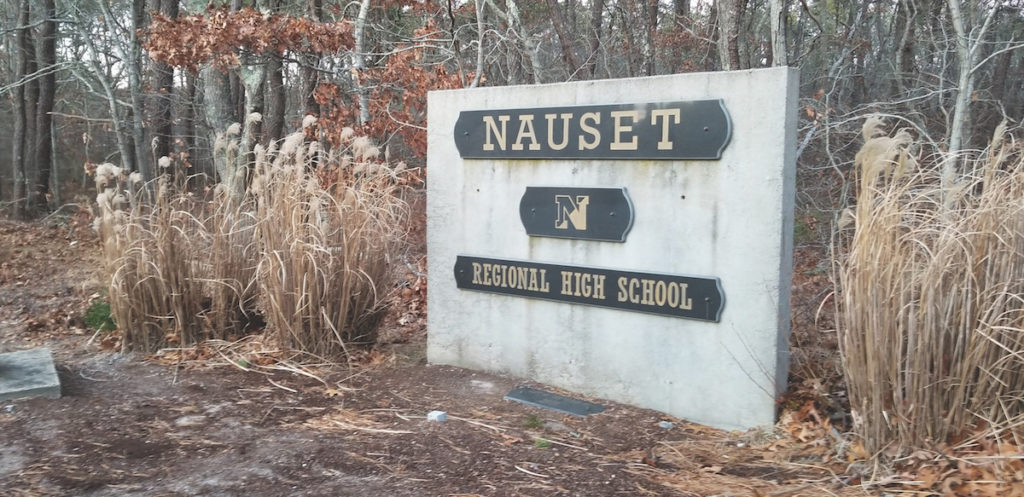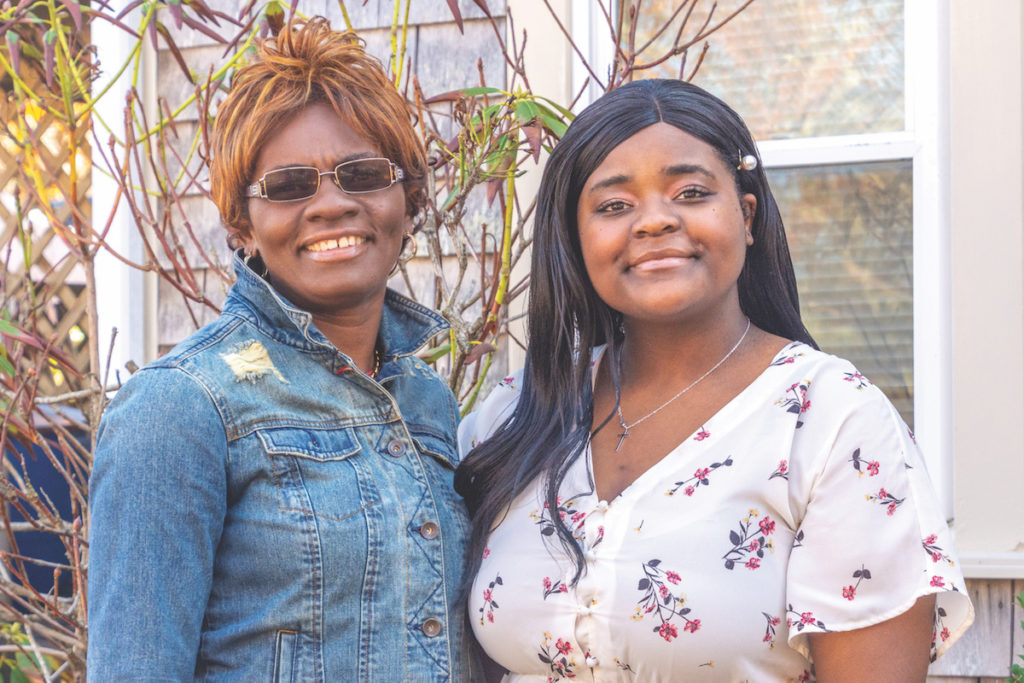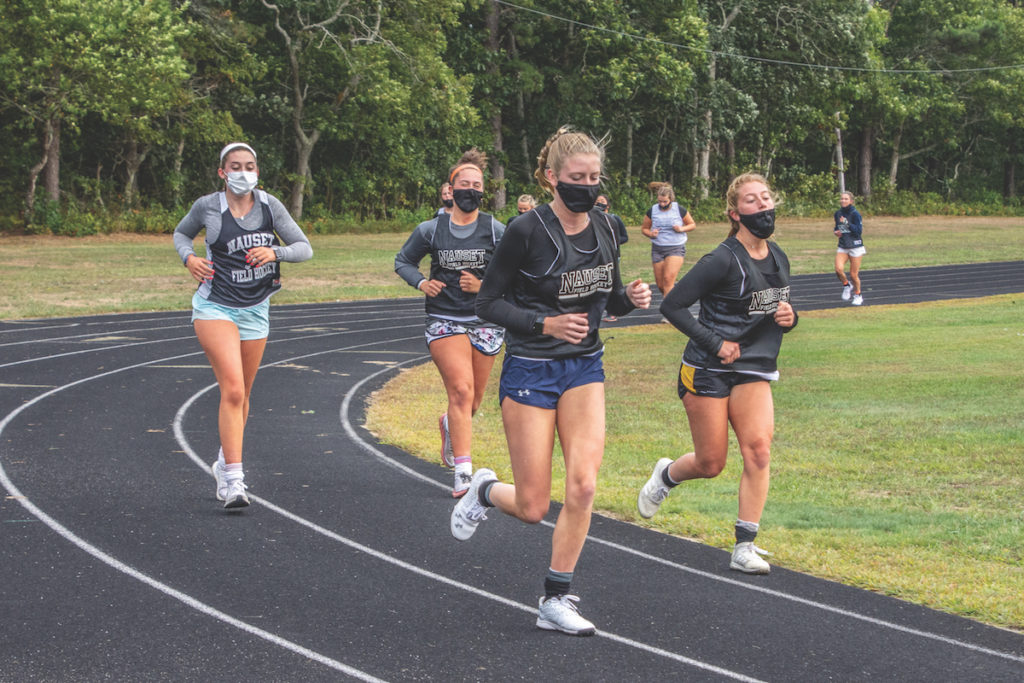EASTHAM — A weird and difficult and rarely-touched-upon part of being a young queer person is that, often, you have to take on the role of educator.
Most obviously, there’s coming out: educating people about who you are. Then — and this is the really hard part — there’s teaching people what to do with that information. You find yourself educating the people who should be educating you: your teachers, your parents, your elders — the people, you fear, who are the least likely to understand you.
“It’s not fair at all,” AJ Beradi said.
Beradi, who is trans and uses both “he” and “they” pronouns, is a senior at Nauset Regional High School and a member of the school’s Gender and Sexuality Alliance — an updated spin on the acronym “GSA,” which used to stand for Gay and Straight Alliance.
In a time when “queer” means so much more than “gay” and when being an “ally” to the LGBTQ community is no longer a specialized, rarefied status, the old name seemed defunct to many members. Gender and Sexuality Alliance, on the other hand, seemed appropriately ambiguous. It’s a name that other groups around the country are adopting.
The state of Massachusetts now sponsors a Gender and Sexuality Alliance Leadership Council as part of its Safe School Program for LGBTQ Students. The council is planning a three-day leadership summit in August at UMass Amherst.

Jaiden van Bork, a junior who is the Nauset Alliance president, speaks about gender and sexuality with a grasp that is enviably deft. A trans woman, she rolls her eyes and makes a point about people who have “a typical experience with gender — if there is such a thing as a typical experience with gender.”
In recent years, the members of the group (there are about 10) say, the GSA at Nauset has taken on the job of educating those people who have more seemingly typical experiences with gender. They say this means teaching adults how they can best be supportive, what does and does not offend (“I can make jokes like that, but you can’t”), and even teaching them about queer history.
In practical terms, the GSA has been trying to educate teachers at Nauset about the importance of language: gender-neutral pronouns (including asking to have everyone put their pronouns in their Zoom display names), “deadnaming” (using the birth name of a transgender person), using “folks” and “parents” (as opposed to words like “ladies and gentlemen” and “mom and dad”), the fact that gender is a construct — and why they should care about all of this.
“A lot of transgender people — especially younger people, especially if they don’t have supportive home environments — are going through life in this world where they are having their identity challenged and invalidated at every turn,” said van Bork. “Not only is that terrible in terms of self-image, but it’s also not conducive to learning.”
In her view, “Anybody who cares not just about transgender people but about young people should really want to make even one part of teen life just a little bit less scary.”
In addition to educating individual teachers about shifting language paradigms, the GSA is pushing for more inclusive course content. They want to see more education about LGBTQ history, more art and literature by queer artists included in the classroom, and more queer- and trans-inclusive health education.
“I know first-hand what it’s like to have students in history and government classes talking about your rights in front of you,” Beradi said, “debating whether or not you get to have them.”
Since a positive curriculum about LGBTQ people is right now mostly absent from schools — including Nauset — these queer teens say they end up turning to the internet to learn about themselves. For Beradi, YouTube was one of the main ways they went “about figuring everything out for myself. Queer history or identity wasn’t something I was taught. It was something I had to go get myself.”
Those Beradi learned the most from, they said, include Kat Blaque, Miles McKenna, and Contrapoints. Contrapoints is the screen name of Natalie Wynn, a trans woman who dropped out of Northwestern’s Ph.D. program in philosophy, calling it “a guided tour of history’s most boring homosexuals.” Wynn uploads intellectually dense videos that draw on the work of queer theorists such as Michel Foucault and Judith Butler.
Beradi joined the GSA as a way to share that learning with classmates, teachers, and parents.
GSA members’ sense that their role — students educating their teachers — doesn’t seem fair hasn’t stopped them from believing things will change and from taking the long view.
“As much as it’s stuff I’m very passionate about and committed to fighting for, I do think it’s unfortunate that this has to come from the bottom up rather than the top down,” van Bork said.
She imagined what it would look like for administrators at Nauset to take it upon themselves to hold sessions for faculty about gender and sexuality, or for teachers themselves to slot LGBTQ history and culture into the curriculum, rather than students having to ask them to do so.
“All that being said,” van Bork said emphatically, “I think that’s how society progresses. A lot of change happens when the older generation listens to the younger generation. And that’s exactly what the GSA is up to.”









